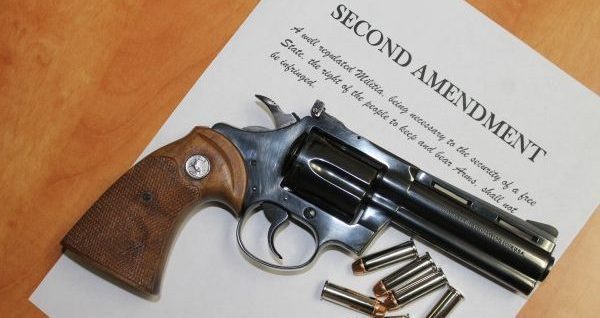
(Dave Workman photo)
Writing at the National Review, Cody J. Wisniewski pulls no punches in describing the impact of gun control laws on minority and poor citizens, pointing a finger at self-described “progressives” who support increasingly restrictive gun laws, wondering how they can claim to be “champions of the people.”
“Gun control disproportionately impacts the poor and minorities and puts them at greater risk of prosecution,” says Wisniewski, who is director of the Mountain States Legal Foundation’s Center to Keep and Bear Arms.
In 700 words, he brutalizes the gun prohibition movement for supporting laws that make it more difficult, if not impossible, for people of color and low or no income to legally purchase firearms for their personal protection.
“But minorities and those living in poor areas are much more likely to experience crime,” Wisniewski observes, “especially violent crime, compared with their fellow citizens. These individuals are in particular need of the ability to defend themselves, and they have the same right to do so as someone living in a safe, upper-class suburb; and yet gun-control laws eviscerate this right for vulnerable Americans in several ways.”
He is not the first person to write about the racist roots of gun control. Historian Clayton Cramer talked about it nearly 30 years ago in an essay titled “The Racist Roots of Gun Control.”
Twenty-five years later, attorneys and Second Amendment scholars David Kopel and Joseph Greenlee collaborated on an Op-Ed in The Hill, similarly headlined, “The racist origins of gun control laws.” History is an interesting socio-political tool because it cannot be changed, no matter how much some people are currently trying to erase it.
Going back to the infamous “Black Codes” of the Reconstruction period following the Civil War, any student of U.S. history would recognize the purpose was to prevent freedmen from exercising their rights.
Wisniewski’s Op-Ed pulls no punches when blaming “progressives” for the regressive nature of gun control.
“The entire history of gun control has been hellbent on depriving minorities of their rights,” he states. “Before the founding of the United States, some colonies prohibited freedmen, slaves, and indentured servants from possessing firearms. Others prevented Catholics from gun ownership. Massachusetts prohibited gunsmiths from repairing or selling firearms to Native Americans.
“Despite being lauded as a progressive necessity,” Wisniewski argues, “gun control, at its core, has always been discriminatory against ethnic, political, and religious minorities, as well as the poorest members of our society.”
Wisniewski’s National Review article might be considered “required reading” for any self-absorbed gun prohibition activist. It effectively “pins the tail on the donkey,” which adds to the irony because that has become the symbol of the party to which most anti-gunners belong, or at least to which they reflexively give their votes.